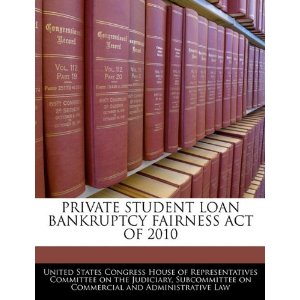Tag Archives: Student loan debt
Student Loan delinquencies on the rise
A recent report the report by the Federal Reserve Bank of New York says it’s likely that as many as one out of four borrowers are carrying a past-due student loan balance, hence student loan delinquencies are on the rise.
That’s a much higher rate of delinquency than previously thought. By the more conventional measure, the Fed report says, 5.4 million out of 37 million borrowers with student loan balances as of last summer had at least one past-due student loan account — a 14.4% rate. The sum of those past-due balances comes to $85 billion, or about 10% of the total. The same 10% rate applies on average to other types of consumer delinquent debt, such as mortgages and credit cards.
About 167,000 people, or about one-half of one percent of all student-loan borrowers, owe more than $200,000, the New York Fed said in its report, which drew from Equifax credit data. The average balance per borrower: $26,300.
For those looking to lower their monthly payments and interest rates, a private student loan consolidation might be the answer!
Tips to ease the pain of student loan debt
What To Do Before You Refinance Student Loans from a Private Lender
-Names and contact info of all relevant schools
-Detailed personal contact information.
-Social security and driver’s license numbers.
2013 Degrees That Earn the Best Starting Salaries
When thinking about taking on student loan debt, it might be helpful to also take into account your potential starting salary and what industry is currently hiring.
Student Loan Debt for Grandparents?
Through March 2012, the number of borrowers of student loans age 60 and older was 2.2 million, a figure that has tripled since 2005. That makes them the fastest-growing age group for college debt. All told, those borrowers owed $43 billion, up from $8 billion seven years ago, according to the Federal Reserve Bank of New York.
Almost 10 percent of the borrowers over 60 were at least 90 days delinquent on their payments during the first quarter of 2012, compared with 6 percent in 2005. And more and more of those with unpaid federal student debt are losing a portion of their Social Security benefits to the government, nearly 119,000 through September, compared with 60,000 for all of 2007 and 23,996 in 2001, according to the Treasury Department’s Financial Management Service.
How to chip away at your Student Loan Debt without making additional payments
Cedar Education Lending Endorses Proposed New Senate Legislation
Cedar Education Lending endorses the Know Before You Owe legislation introduced March 29 by Senators Dick Durbin (D-Ill.) and Tom Harkin (D-Iowa). According to Durbin, “two-thirds of students with private loans are unaware of the dramatic difference between Federal student loans and risky, higher-interest, private student loans.” The senators are particularly concerned that students apply for and exhaust all efforts to receive Federal aid before they apply for private student loans.
The Know Before You Owe Act of 2012 would empower students to exhaust their Federal financial aid options, which are more reasonable than the terms of private loans. Federal student loans have fixed interest rates and offer an array of consumer protections and favorable terms, including deferment and forbearance in times of economic hardship, manageable repayment options such as the income-Based Repayment and Public Service Loan Forgiveness programs.
The Act would specifically require private lenders to: certify with the school that the student is enrolled and the amount the student is eligible to borrow in Federal loans; provide the borrower with quarterly updates on their loans, including accrued but unpaid interest and capitalized interest; and, report information to the Consumer Financial Protection Bureau about their student loans. In addition, institutions of higher education would have to inform students about their Federal financial aid availability and their ability to select a private lender of their choice, as well as inform them about the terms and conditions of Federal and private student loans.
“Cedar Education Lending is ahead of the curve on this legislation,” says Harvey Berkey, COO. Unfortunately, the Federal government doesn’t have sufficient funds to supply necessary financial aid and support to all needy students. Students often require private loans to supplement their Federal aid. Cedar Ed supplies Private Student Loans and, after graduation, Private Student Loan Consolidationw to enable students to completely fund their education.
From inception, Cedar Ed has been completely transparent with regard to its lender policies, terms and provisions. Students are clearly cautioned to review all Federal aid prior to seeking a Cedar Ed private loan. All terms related to potential Cedar Ed loans are made clear to the student in advance. Cedar Ed already makes sure its lender certifies with the borrower’s school that the student is enrolled and provides the loan funds to the student through the school, not directly to the student. The student receives timely reports providing information including accrued but unpaid interest and capitalized interest.
“We feel we have already been complying with this legislation and we endorse it completely,” added Mr. Berkey.
In For A Penny, In For A Pound With Private Student Loans
 This financial quandary is amplified by the fact that non-degree holders earn significantly lower than those with a college diploma. Modern job roles, especially the high paying ones, include a Bachelor’s degree as one of the minimum qualifications. In terms of annual salary, college graduates earn an average of $52,200 versus the $30,400 of high school graduates. At this point, it’s really just simple math: the more you earn, the more money you can use to pay off debt.
This financial quandary is amplified by the fact that non-degree holders earn significantly lower than those with a college diploma. Modern job roles, especially the high paying ones, include a Bachelor’s degree as one of the minimum qualifications. In terms of annual salary, college graduates earn an average of $52,200 versus the $30,400 of high school graduates. At this point, it’s really just simple math: the more you earn, the more money you can use to pay off debt.An age-old mantra constantly reminds people that in life, quitters never win. This strongly resonates when it comes to finishing college, especially if you have a student loan to pay off.
How To Avoid Private Student Loan Bankruptcy

- be more responsible when it comes to borrowing money. Know all the fees, the rates and the conditions attached to the loan before pushing through with your application. Seek the help of your guidance counselor or the school personnel assigned to explain student loans.
- find a resolution as early as possible. If you feel that you are not that successful when it comes to managing your finances, seek help as early as possible. Consider doing a private student loan consolidation, to make it easier for you to pay off your debts. Seek help from your guidance counselor, or even your parents. You should not let things get worse for you and your debts.
- live frugally and within your means. It may be a heady feeling to be able to spend your first paycheck, but it is also more practical to pay off your debts first before splurging. Manage your finances well, and make sure that you pay your monthly dues religiously, since this can also help you build a good credit score, which could be of great help for you in the future.Â

